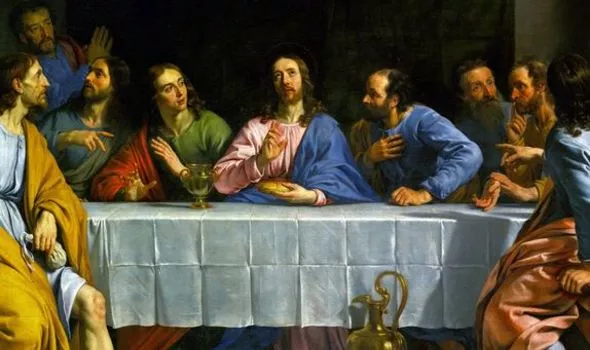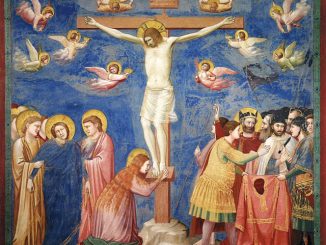
• Finding strength, humility, and love in the journey of faith
By Seyi Gesinde
On Holy Thursday, we are reminded of profound lessons of Jesus Christ’s sacrificial love that transcend time, echoing through the ages to inspire and uplift us in our journey of faith.
Scriptural Origin:
Holy Thursday, also known as Maundy Thursday, finds its roots in the New Testament, particularly in the Gospels. The events of this sacred day are recounted with profound significance, notably in Luke 22:14-20, where the Last Supper is described, and in John 13:1-17, where Jesus washes the feet of his disciples. In the biblical narrative, Maundy Thursday marks the beginning of the Easter Triduum (which denotes the three days from the evening of Holy Thursday to the evening of Easter Sunday), a period of intense reflection on the passion, death, and resurrection of Jesus Christ.
The term “Maundy” originates from the Latin word “mandatum,” meaning “commandment.” It refers specifically to the commandment given by Jesus to his disciples during the Last Supper, as recounted in the Gospel of John 13:34-35: “A new commandment I give to you, that you love one another: just as I have loved you, you also are to love one another. By this all people will know that you are my disciples, if you have love for one another.”
Therefore, “Maundy” in the context of Maundy Thursday emphasises the significance of Jesus’ commandment to love one another, highlighting the act of humility and service demonstrated by Jesus when he washed the feet of his disciples during the Last Supper. It serves as a reminder of the central importance of love and compassion in the Christian faith.
Here are the accounts of events on Holy Thursday, illuminating profound lessons we can glean from the life of Jesus Christ.
1. The Last Supper (Luke 22:14-20)
• Significance: The Last Supper was the final meal Jesus shared with His disciples before His crucifixion, during which He instituted the sacrament of the Eucharist (the Holy Communion).
• Lessons: It emphasises the importance of communion and remembrance of Jesus’ sacrifice. It teaches us to gather in fellowship, share in the spiritual nourishment of the Eucharist, and remember the central message of love and unity.
2. Washing of the Feet (John 13:1-17)
• Significance: Jesus washed the feet of His disciples, demonstrating humility and the importance of servant leadership.
• Lessons: It teaches us to serve others with humility, regardless of our status or position. By washing His disciples’ feet, Jesus showed that true greatness lies in serving others selflessly.
3. Agony in the Garden (Matthew 26:36-46)
• Significance: Jesus prayed in the Garden of Gethsemane, expressing His anguish and surrendering to God’s will before His arrest.
• Lessons: It illustrates Jesus’ human struggle and His ultimate obedience to God’s plan. It teaches us to trust in God’s will, even in times of great difficulty and suffering.
ALSO READ: Why Easter is so important to Christians
4. Betrayal by Judas (Matthew 26:47-56)
• Significance: Judas betrayed Jesus with a kiss, leading to His arrest and subsequent crucifixion.
• Lessons: It highlights the reality of human betrayal and the importance of forgiveness. Jesus’ response to Judas’ betrayal demonstrates the boundless nature of divine mercy and the call to forgive others, even in the face of betrayal.
5. Institution of the Eucharist (1 Corinthians 11:23-26)
• Significance: Jesus instituted the sacrament of the Eucharist during the Last Supper, commanding his disciples to partake in remembrance of him.
• Lessons: It emphasises the spiritual significance of the Eucharist (Holy Communion) as a means of grace and communion with God. It calls us to remember Jesus’ sacrifice and to partake in the sacrament with reverence and gratitude.
6. Prediction of Peter’s Denial (Luke 22:31-34)
• Significance: Jesus predicted Peter’s denial of Him before the rooster crowed.
• Lessons: It illustrates human frailty and the temptation to deny our faith in difficult circumstances. It reminds us of the importance of steadfastness in our commitment to follow Jesus, even in the face of trials and persecution.
7. Preparation for Jesus’ Arrest (Matthew 26:36-46, Mark 14:32-42, Luke 22:39-46)
• Significance: Jesus prepared himself for His impending arrest and crucifixion through prayer and submission to God’s will.
• Lessons: It demonstrates the importance of prayer and spiritual preparation in facing life’s challenges. Jesus’ example encourages us to seek strength and guidance through prayer, trusting in God’s presence and guidance in all circumstances.
As we contemplate the significance of Holy Thursday, let us immerse ourselves in these sacred narratives, drawing inspiration from the profound teachings and example of Jesus Christ. Through reflection and prayer, may we deepen our understanding of God’s infinite love and find renewed strength to walk the path of discipleship with humility, compassion, and unwavering faith.




